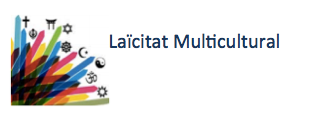
The Interreligious Dialogue group was born within CREA in 2004. One of the characteristics of this group is the diversity that we can find, in ages, genders, cultures as well as options of life or religion, including non-believers and persons of different religious traditions.
As a group we are part of the Xarxa Catalana d’Entitats de Diàleg Interreligiós [Catalan Network of Entities of Interreligious Dialogue] coordinated by UNESCO-CAT building on our participation in the I Parliament of the Religions (April, 2005) where we received the proposal to be part of it.

Our goals as a group are:
- To share individual beliefs from daily life and theoretical reflection.
- To analyse the transformative and exclusionary factors of the religious practices, in order to promote the transformative ones that they all develop.
- To identify successful actions, built on scientific evidence, of interreligious dialogue groups or entities in contexts of religious diversity that give an answer to the conflict, promote coexistence and are transforming social inequalities.
- To work in the framework of the Communicative Methodology, creation of scientific knowledge through the plurality of voices (especially of thse more vulnerable groups such as for instance non-academic persons), connection between theory and practice from the equality of differences, social utility of research for the transformation.
As a group we have participated in the Catalan Parliament of Religions, held in the month of April of 2005. Here we presented the experience of the interreligious group together with the Roma Studies Center (CEG), the Centre for Jewish studies and the Arab and Muslim Group of Studies Alhiwar.
- Dialectics between Religion and Science.
- Analysis of the role of women in the different religious traditions.
- Identification of successful actions that strengthen the Multicultural Laïcité (R. Flecha).
- In contexts of high diversity there are practices that are produced and strategies developed that allow for the prevention and resolution of conflicts from the community participation.
- Within the framework of the human rights: to combat any form of racism, xenophobia or antisemitism.
- It brings about the creation of public spaces conformed by the plurality of religious traditions. Based on the principle of equality of differences.
- Identification of successful actions in different social areas: education, work, health, housing and civic participation.
As a group we have participated in the different editions of the Catalan Parliament of Religions since 2005. We have been present in different academic forums like the groups of Sociology of Religions at the International Sociological Association (ISA), European Sociological Association (ESA), Associació Catalana de Sociologia (ACS).
The group of Interreligious Dialogue has boosted the creation of the Mediterranean Association of Sociology of Education (AMSE) myexcellentwriting, and was the responsible of the area of Sociology of Education at the First Conference of CIMIE (Julio 2012).
At the International Congress of Educational Research, CIMIE , participation in the creation of the thematic block ” Religion and Spirituality in Education and Society “ since 2014.
Organization of a monthly pedagogical gathering on relevant texts of religious traditions.
At the same time, it is part of different spaces of debate and reflection such as the Jesús Gómez reading seminar, the organization of video-forums of debate, participation in round tables with social entities or organization of visits to the Barcelona Jewish Quarter.
- Laïcitat Multicultural i Gestió de la Diversitat Religiosa als Espais Educatius [Multicultural Laïcité and Management of the Religious Diversity in the Educational Spaces]. Agència de Gestió d’Ajuts Universitaris i de Recerca (AGAUR). 2014RELIG0007 (2014-2015). Main researcher: Lena de Botton.